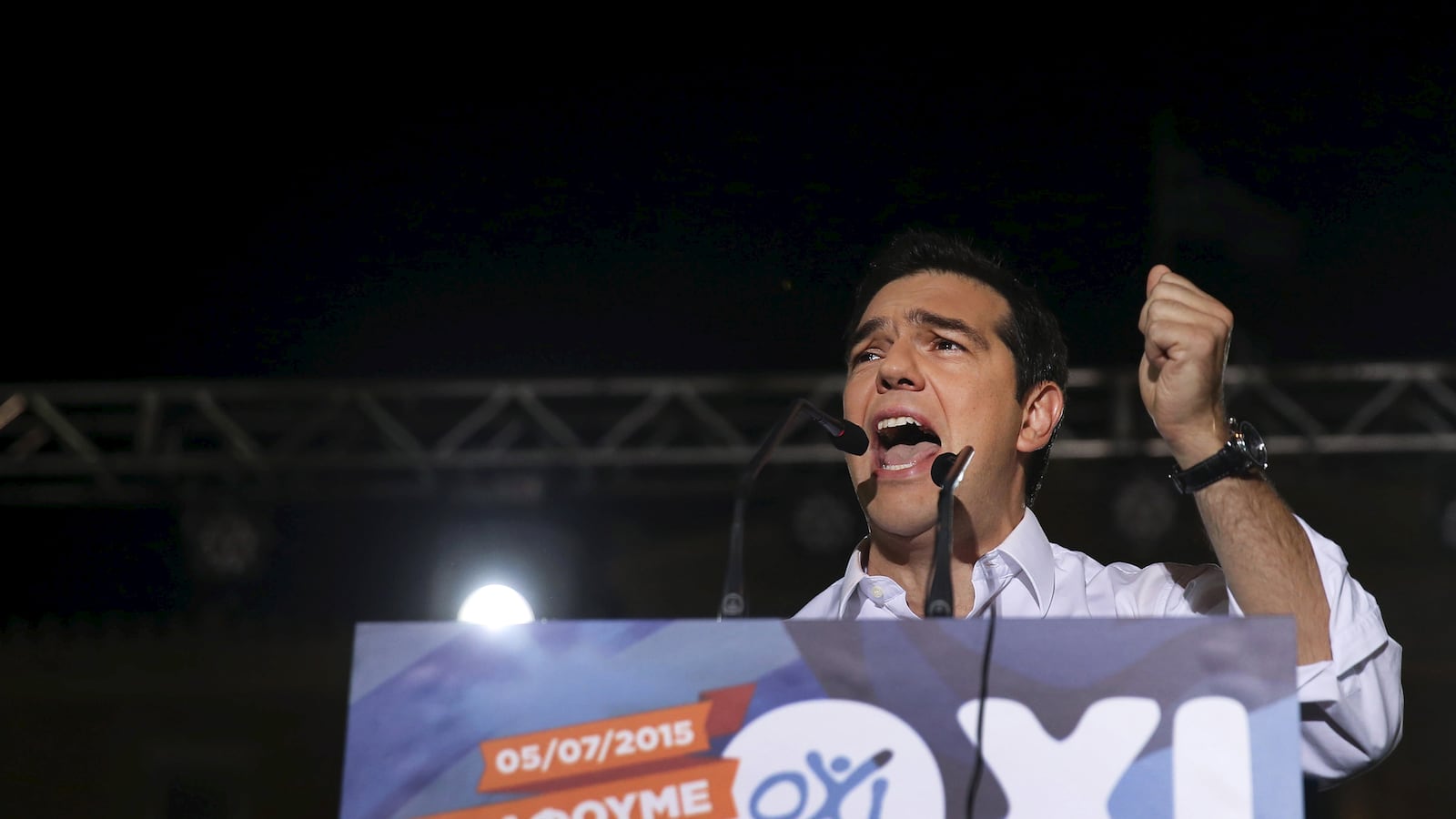The Greeks invented democracy and, let’s not forget, tragedy.
That should be kept in mind as the returns for the Greek referendum trickle in. The country went to the polls on Sunday to cast what could turn out to be one of the most consequential votes in its history: Whether to vote “yes” to continuing the austerity program imposed by Greece’s German and French creditors, or to reject that and default on the loans—with variously dire consequences predicted.
At the time of writing, according to official returns, with just under 45 percent of districts reporting, the “no” vote led with 61.07 percent as against 38.88 percent for “yes” votes. Stathis Kalyvas, the Arnold Wolfers Professor in Yale’s Department of Political Science and Co-Director of the Hellenic Studies Program, wrote on his twitter feed that the “no” vote was “bigger than expected,” brought on by “emotions (nationalism & defiance) plus obliviousness. Most people in Greece discount risk heavily; they bought government's assurances.”
While this crisis dates its genesis to the 2008 financial crisis, the most immediate twist in this financial farce started on June 22 when Greek Prime Minister Alexis Tsipras met with the country’s creditors in Brussels to try to end the stalemate over debt repayments. Tsipras needed to convince the European Commission, the European Central Bank (ECB) and the IMF to release the final tranche of €7.2 billion in bailout funds to keep his country going. (This is a bit of a head-scratcher, because the ECB is largely funded by German and French banks that are the same banks Greece owes money to. So, in essence the banks are indirectly bailing out Greece so it will pay them back with their own funds.)
In return for the €7.2 billion, the lending agencies wanted Greece to implement even more harsh austerity reforms such as cutting back on pensions, social services, raising taxes and the like. Tsipras made a counter-offer that didn’t go far enough for Germany’s tastes, so he called their bluff and sent the deal to the Greek people in today’s referendum.
They seem to have said no deal.
So what next? Now that Greece appears to have firmly rejected the earlier accord with creditors that had money from the European Central Bank keeping the economy afloat (although under harsh terms), Kalyvas predicts Tsipras will fail to get a better deal from the creditors and then blame them for treating Greece unfairly. His bluster has worked for him in the past, Kalyvas wrote; there’s little reason to doubt he’ll change tactics now.
If he rejects a future deal with the creditors, the Greek economy will collapse. Athens will be cut off from most international capital markets, and local banks are broke, partly thanks to a run on them in the days leading up to the referendum. Expect shortages of everything from medicine to toilet paper. The tourism industry—one of Greece’s most important—could well be kneecapped, at least in the short term.
With government coffers bare, it’s unclear how government employees will be paid. “On July 12 or so public servants get paid. With IOUs? If that happens, expect social explosion,” Kalyvas wrote. He does not expect the Tsipras government to survive.
Some believe a compromise can yet be reached, and Tsipras says he will return to the negotiating table on Monday with a stronger hand. He is essentially telling Europe that unless it cuts Greece some slack and releases the funds with fewer conditions, Greece will exit the Eurozone and probably collapse. That could further weaken the common currency, and shake the weaker economies of Europe such as Spain.
If Greece is forced to leave the Eurozone, it will likely re-issue its old currency, the drachma, and devalue its debt. This will lead to chaos in the medium term with a lot of hardship for Greeks. Pensions already slashed by half will lose what little remains of their value overnight and youth unemployment, already at almost 50 percent, would get even worse. That means Greeks will soon vote again—with their feet. Europe could face an influx of Greeks flooding into the E.U. looking for work. What would be Europe’s response, given the refugee crisis from North Africa already swamping the Mediterranean?
And that seems to be Tsipras’ dare to the rest of Europe: Pay now to keep Greece in Europe or pay a lot more later to keep Greeks out.




